Army NCO guides are essential resources for Noncommissioned Officers, detailing their roles, responsibilities, and professional development. They provide insights into leadership, conduct, and military standards, ensuring effective service.
1.1. Overview of the Role of Noncommissioned Officers (NCOs)
NCOs are the backbone of the Army, serving as leaders, mentors, and experts in their fields. They bridge the gap between enlisted soldiers and senior officers, ensuring mission execution and maintaining unit cohesion. Their roles encompass training, discipline, and fostering a culture of professionalism and accountability, making them indispensable to military operations and leadership development.
1.2. Importance of NCO Guides in Military Leadership
NCO guides are crucial for fostering effective military leadership by providing standardized procedures, ethical frameworks, and professional development strategies. They ensure consistency in training, decision-making, and conduct, helping NCOs lead by example and maintain high standards. These guides also address real-world challenges, enabling NCOs to navigate complex situations with confidence and integrity, thereby strengthening overall military readiness and mission success.
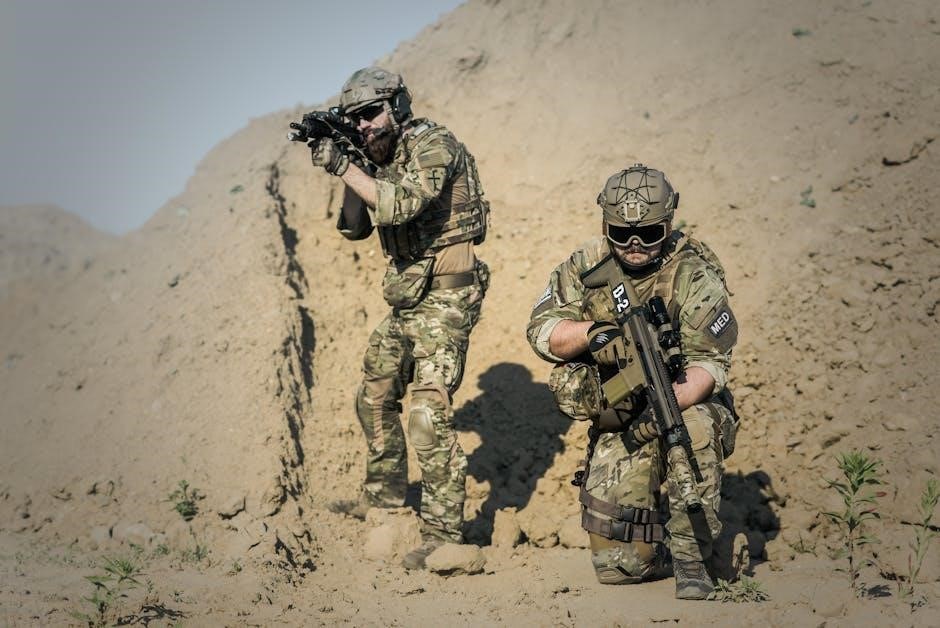
Leadership and Strategy for NCOs
Leadership and strategy are vital for NCOs to inspire, motivate, and guide their teams effectively. It involves developing a strategic mindset, critical thinking, and decision-making skills to achieve mission success.
2.1. Developing a Strategic Mindset
Developing a strategic mindset enables NCOs to think critically and anticipate challenges. It involves understanding the broader mission, identifying strengths and weaknesses, and aligning actions with long-term goals. This skill fosters adaptability, innovation, and proactive problem-solving, ensuring effective decision-making and mission success in dynamic environments.
2.2. Effective Decision-Making in High-Pressure Situations
Effective decision-making under pressure is crucial for NCOs. It requires staying calm, focusing on priorities, and analyzing situations quickly. Strong situational awareness and clear communication ensure informed choices. NCOs must balance mission objectives with the safety of their team, leveraging training and experience to make swift, ethical decisions that align with military values and operational goals in high-stress environments.

Responsibilities and Conduct of NCOs
NCOs are responsible for setting the example, upholding professional standards, maintaining discipline, and ensuring accountability while promoting ethical conduct within their units.
3.1. Setting the Example: Professional Standards and Conduct
NCOs must consistently model professionalism through their actions and demeanor. They ensure adherence to military standards, fostering a culture of accountability and integrity. By leading by example, NCOs inspire their teams to uphold ethical behavior and maintain high levels of performance, reinforcing the core values of the Army. Their conduct sets the foundation for unit cohesion and success.
3.2. Discipline and accountability
3.2. Discipline and Accountability
Discipline is the cornerstone of military effectiveness. NCOs enforce standards, ensuring accountability through consistent and fair enforcement of rules. They lead by example, fostering a culture of responsibility and self-discipline. Accountability extends to both individual actions and team performance, promoting trust and reliability within the unit. This dual focus on discipline and accountability ensures mission readiness and upholds the Army’s core values. Strong leadership is essential in maintaining this structure.
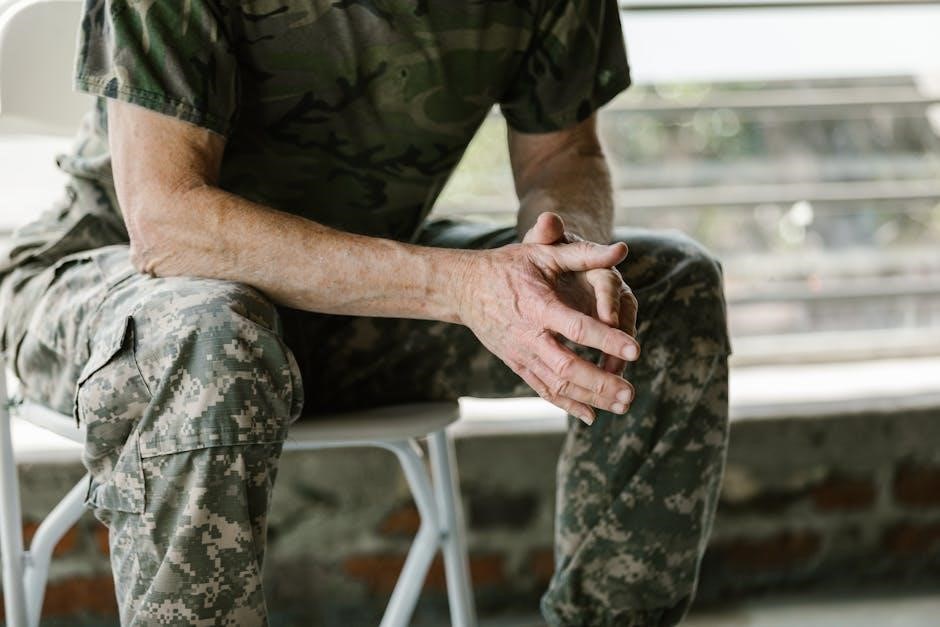
Training and Development
Training and development are crucial for NCOs, focusing on continuous learning, skill enhancement, and physical fitness. These efforts ensure combat readiness and effective leadership, fostering growth and mission success.
4.1. Continuous Learning and Skill Development
Continuous learning is vital for NCOs to stay updated with evolving military strategies and technologies. Through structured training programs, NCOs enhance their leadership, tactical, and technical skills, ensuring they remain effective in dynamic environments. This ongoing development fosters adaptability, critical thinking, and innovation, which are essential for meeting modern military challenges and leading troops successfully in various scenarios.
4.2. Physical Fitness and Combat Readiness
Physical fitness is a cornerstone of NCO leadership, ensuring readiness for combat and operational demands. Regular training, adherence to fitness standards, and maintaining mental resilience are critical. NCOs must lead by example, fostering a culture of physical excellence to prepare soldiers for missions and ensure unit cohesion and effectiveness in high-stress environments.
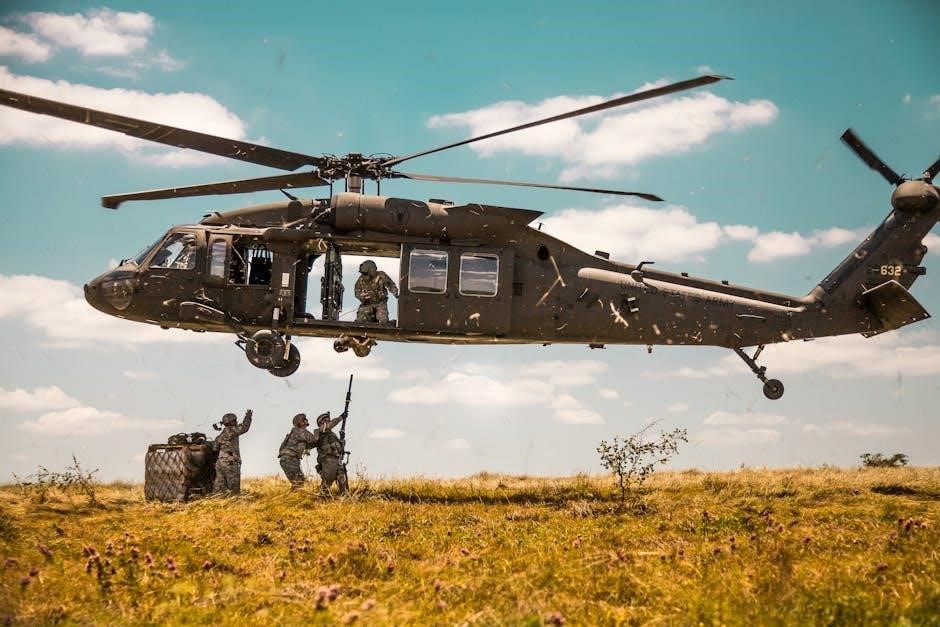
Promotion and Advancement
Promotion and advancement for NCOs require meeting specific testing requirements and building a strong portfolio. Continuous learning and demonstrated leadership are key to achieving higher ranks effectively.
5.1. Understanding Promotion Testing and Requirements
Understanding promotion testing and requirements is crucial for NCOs. Tests assess knowledge based on rank, using a scale from A to D. Resources like study guides and mentorship aid preparation, ensuring NCOs meet standards for advancement. This process evaluates both technical and leadership skills, aligning with professional growth and readiness for higher responsibilities.
5.2. Building a Strong Promotion Portfolio
Building a strong promotion portfolio involves showcasing leadership skills, achievements, and adherence to military standards. Maintain detailed records of performance, training, and mentorship. Highlight continuous improvement, alignment with core values, and contributions to mission success. Regularly update and refine the portfolio with feedback from superiors and peers to demonstrate readiness for advanced roles and responsibilities.
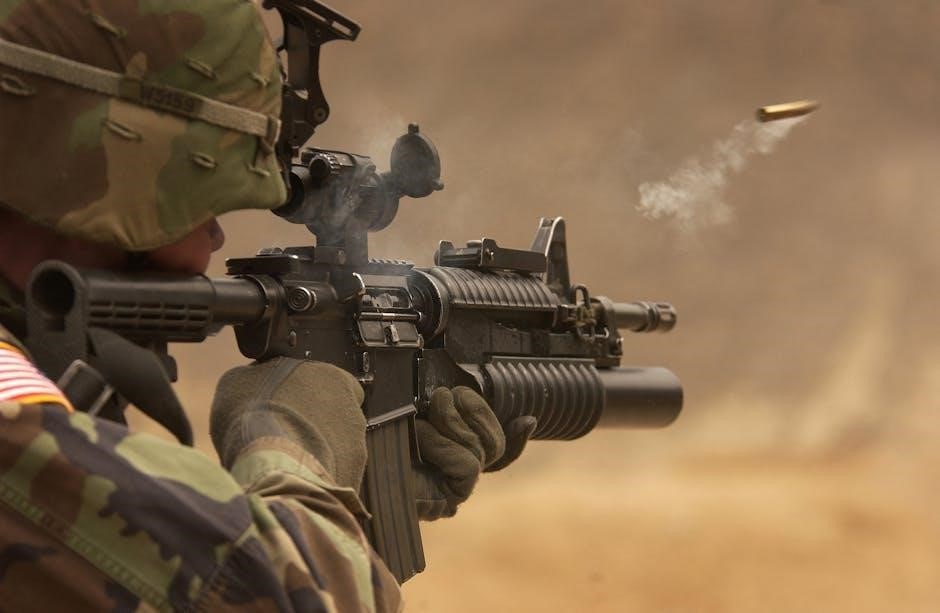
Communication and Teamwork
Communication and teamwork are critical for NCOs, fostering trust, collaboration, and mission success. Effective interaction ensures clear direction, while teamwork strengthens unit cohesion and collective performance.
6.1. Effective Communication Skills
Effective communication is vital for NCOs to convey clear instructions, listen actively, and engage their teams. Strong verbal and written skills ensure clarity, build trust, and foster a positive command climate, enabling seamless mission execution and collaboration among soldiers at all levels. Clear communication also resolves conflicts and enhances overall unit performance and morale; It is essential for leadership success.
6.2. Building and Leading High-Performing Teams
Building high-performing teams requires empowering soldiers, fostering collaboration, and ensuring alignment with the mission. NCOs must lead by example, resolve conflicts, and encourage open dialogue. By leveraging diverse skills and promoting accountability, leaders create a cohesive unit. Recognizing achievements and maintaining adaptability further strengthen team dynamics, ensuring collective success and readiness for challenges. Effective team leadership is a cornerstone of NCO responsibility.

Mentorship and Professional Development
Mentorship and professional development are crucial for NCO growth, providing guidance, enhancing skills, and fostering career advancement through structured support and continuous learning opportunities.
7.1. The Role of Mentorship in NCO Development
Mentorship plays a vital role in NCO development by fostering leadership skills, career growth, and personal development. Seasoned mentors guide junior NCOs in navigating challenges, enhancing decision-making, and understanding core values, leading to well-rounded and effective leaders capable of inspiring and motivating their teams to achieve mission success and uphold military standards.
7.2. Goal Setting and Career Planning
Effective goal setting and career planning are crucial for NCOs to achieve professional success. By identifying strengths and developmental needs, setting clear objectives, and leveraging resources, NCOs can create a structured career path. Regular assessments and mentorship ensure continuous progress, aligning personal aspirations with military requirements and fostering long-term career satisfaction and advancement opportunities within the Army.
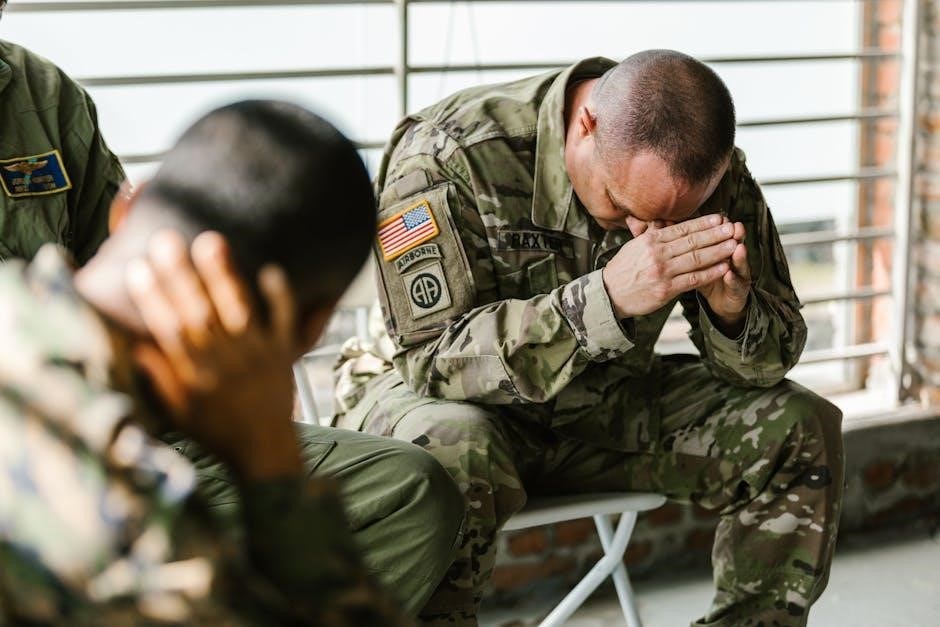
Ethical Considerations and Conduct
Ethical considerations and conduct are foundational for NCOs, ensuring adherence to military ethics and core values. NCOs must uphold integrity, fairness, and accountability in all actions, fostering trust and integrity.
8.1. Understanding Military Ethics and Core Values
Understanding military ethics and core values is crucial for NCOs, as they guide decision-making and behavior. These principles, such as integrity, respect, and fairness, ensure actions align with military standards, fostering trust and accountability within the unit and upholding the Army’s reputation. NCOs must internalize these values to lead ethically and maintain discipline, reflecting the highest standards of military conduct.
8.2. Managing Ethical Dilemmas
Managing ethical dilemmas requires NCOs to apply core values and sound judgment. They must identify conflicts, weigh consequences, and make decisions aligning with military ethics. Seeking guidance from mentors and adhering to regulations helps navigate complex situations. Documenting decisions ensures transparency and accountability, fostering trust within the unit and maintaining the integrity of military operations and leadership.
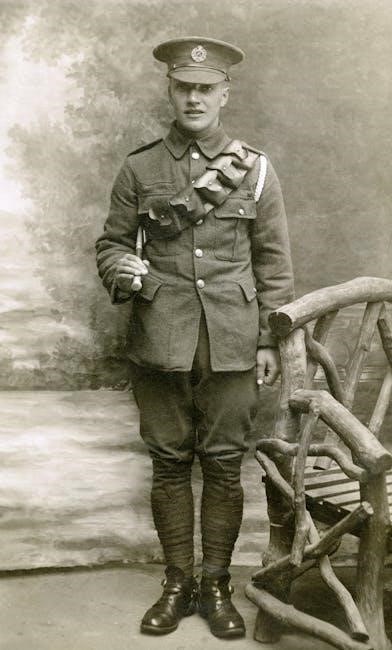
Resources and Support
Resources and support are vital for NCOs, providing access to educational materials, mentorship programs, and guidance. Peer networks and senior leaders offer additional assistance.
9.1. Utilizing Military Resources for Professional Growth
Military resources play a key role in NCO professional development. Field manuals, training courses, and educational programs provide essential knowledge. Utilizing these resources enhances leadership skills, ensuring NCOs meet high standards. Additionally, resources like the Command and General Staff College offer advanced training, fostering strategic thinking and operational excellence.
9.2. Leveraging Peer Networks and Senior Leaders
NCOs benefit greatly from building strong peer networks and seeking mentorship from senior leaders. Collaboration with peers fosters shared knowledge and support, while guidance from experienced leaders provides valuable insights. Senior leaders, like the Sergeant Major of the Army, offer advice on enlisted matters, enhancing leadership skills and career advancement. These connections are vital for professional growth and overcoming challenges.
Effective NCO leadership is pivotal to military success. By embracing continuous improvement and adhering to core values, NCOs ensure mission accomplishment and foster a culture of excellence within the Army.
10.1. The Impact of Effective NCO Leadership
Effective NCO leadership significantly enhances unit cohesion, mission readiness, and moral standards. NCOs set the example, foster a positive command climate, and inspire soldiers to achieve excellence. Their ability to lead by example ensures the Army’s core values are upheld, contributing to overall military success and a disciplined, motivated force ready to face challenges effectively.
10.2. Final Thoughts on Continuous Improvement
Continuous improvement is vital for NCOs to adapt to evolving challenges and maintain peak performance. Embracing lifelong learning, seeking feedback, and applying new skills ensures growth. By prioritizing self-development, NCOs set a standard of excellence, fostering a culture of innovation and readiness within their units, ultimately shaping the future of military leadership with dedication and resilience.